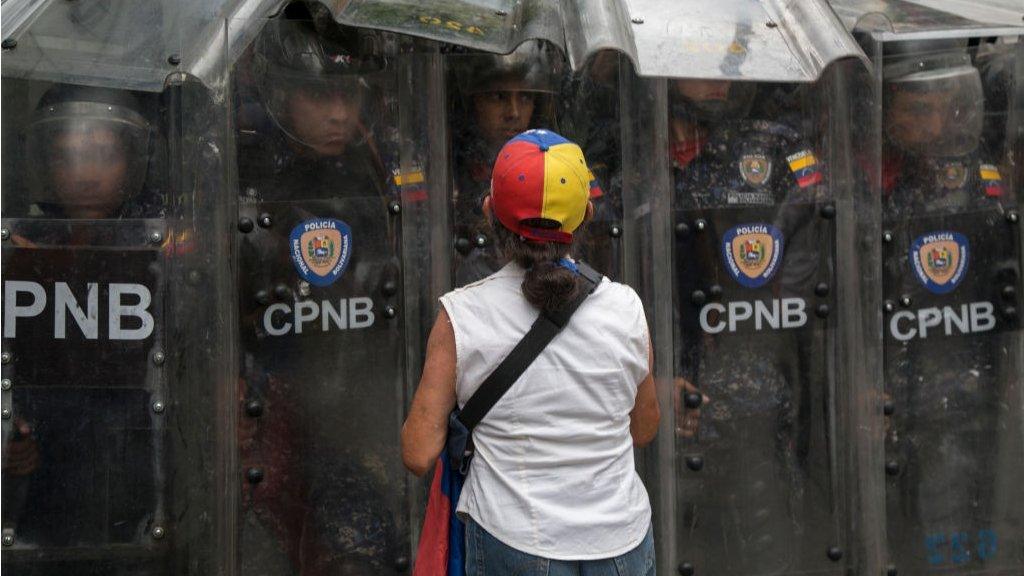Venezuela’s transgender community fears hormone shortages
- Published
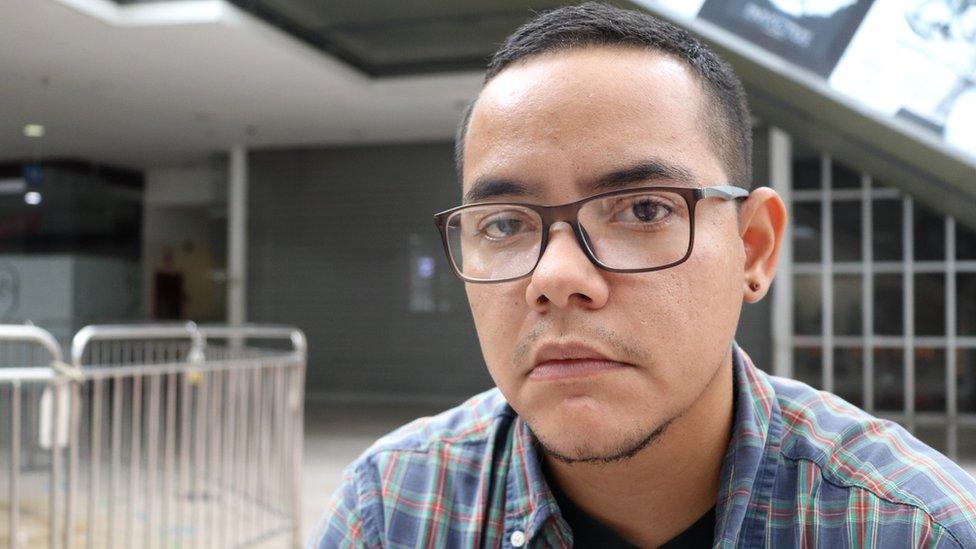
André Bellorín is worried his body is changing back
André Bellorín has fought a long battle for the body that matches his identity.
He has been through two operations, a bitter conflict with his mother and an expensive course of hormone treatment in his hometown, Caracas, Venezuela.
But now he fears he may lose all the progress he has made.
"My beard has stopped growing on some parts of my face and my hips are broadening again," he says.
André's body is changing because he is failing to take the hormones he needs. Once the treatment has begun, it needs to continue for life to prevent reversion.
However, these hormones have become impossible to find in Venezuela, where a political crisis has long caused shortages of medicines and other essential goods.
Venezuela's crisis has also led to hyperinflation
André says he has now given up searching for testosterone, having last taken it in 2014. "I used to ask in every pharmacy in town. Sometimes I was lucky, sometimes not," he says. At one point, his friends clubbed together and managed to bring the injections to him, from Colombia, for his birthday.
Across the country, members of the trans community have faced similar struggles.
Karl Rodríguez, a cook from Caracas, has also taken long trips to neighbouring Colombia to get vials of fluids he needs to inject every three months to keep his testosterone levels high enough.
He says he is saving all he can from his state salary to make a return trip, which would be further complicated by petrol shortages. "One way or another, I will get my hormones," he insists.
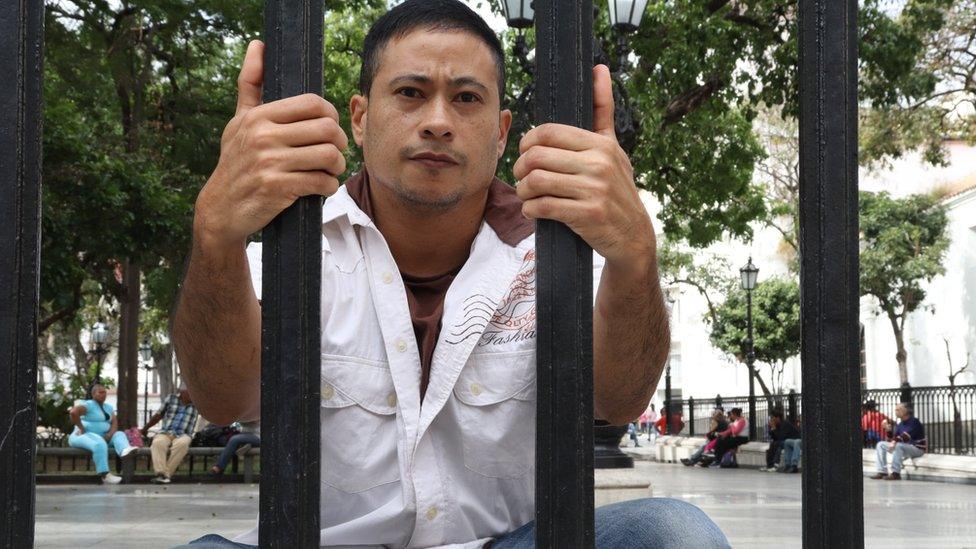
Karl Rodríguez would travel to Colombia again to find the injections
Dr Edward Romero, director of the transgender unit at the UCIEP medical centre in Caracas, estimates at least half of his patients have travelled to other countries in the region - including Colombia, Ecuador and Peru - to find cheaper alternatives.
He says a withdrawal from hormone treatment is not just a physical problem. It can also lead to anxiety and depression, including suicidal thoughts.
He has treated some people who have resorted to buying animal hormones online, which, he says, can lead to multiple health complications, including liver problems and hypertension.
One transgender man, who preferred not to give his name, told BBC Mundo he once bought what he believed was testosterone online, but it turned out to be vegetable resin. He said lumps started forming in his buttocks after he injected it.
The UN estimates that more than four million people have fled Venezuela over the last few years as a result of the severe economic and humanitarian crisis. It is not clear how many of them are lesbian, gay, bisexual or trans.
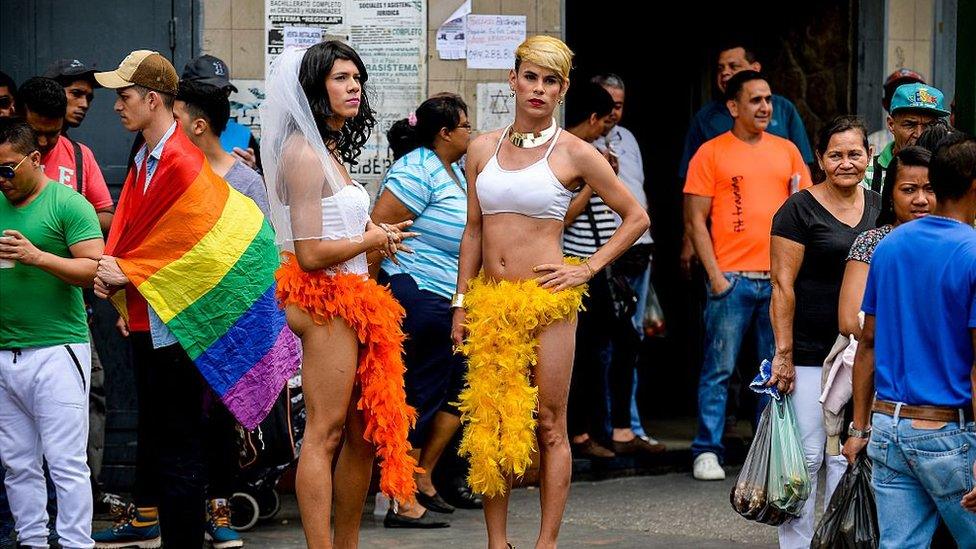
The LGBT community suffers from lack of rights and recognition in Venezuela
Quiteria Franco, from the local non-governmental group Unión Afirmativa, says Venezuela has long had a bad track record for LGBT rights, but now it is among the worst in Latin America.
While the majority of South American countries allow people to change their gender on legal documents, Venezuela is not among them. (The government did not respond to the BBC's interview requests). Same-sex marriage is also not permitted, and neither are civil partnerships.
For André, the female name on his official documents is a constant reminder of an unwanted identity.
Yet his biggest concern is losing the deeper pitch of his voice.
"I would not be able to stand it," he says. "If I were to start resembling a woman again, I would not be able to leave my house."
- Published14 May 2019
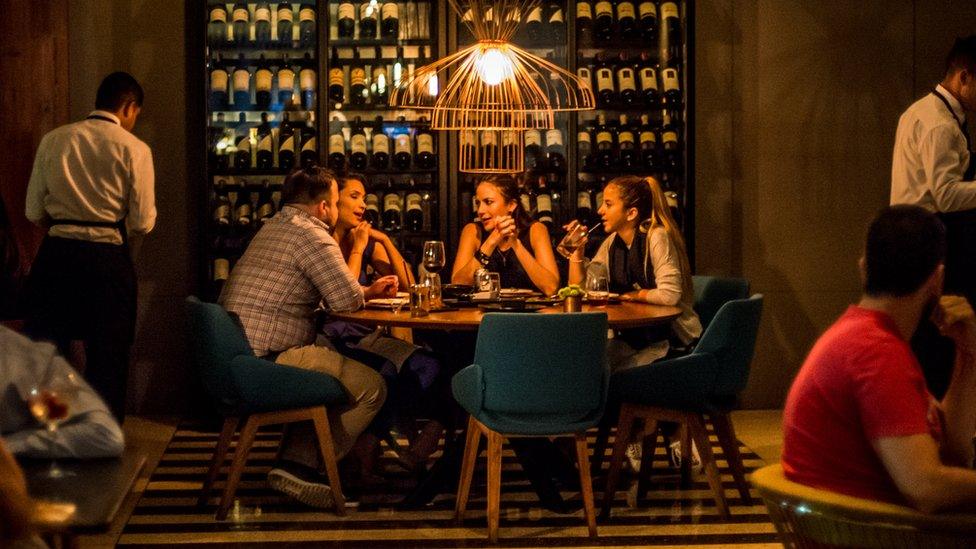
- Published5 August 2024
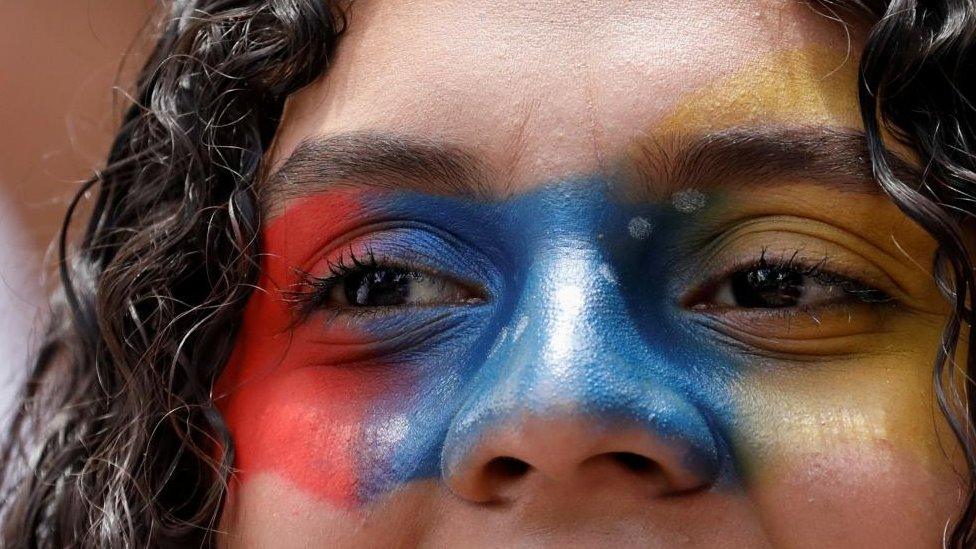
- Published12 August 2021
